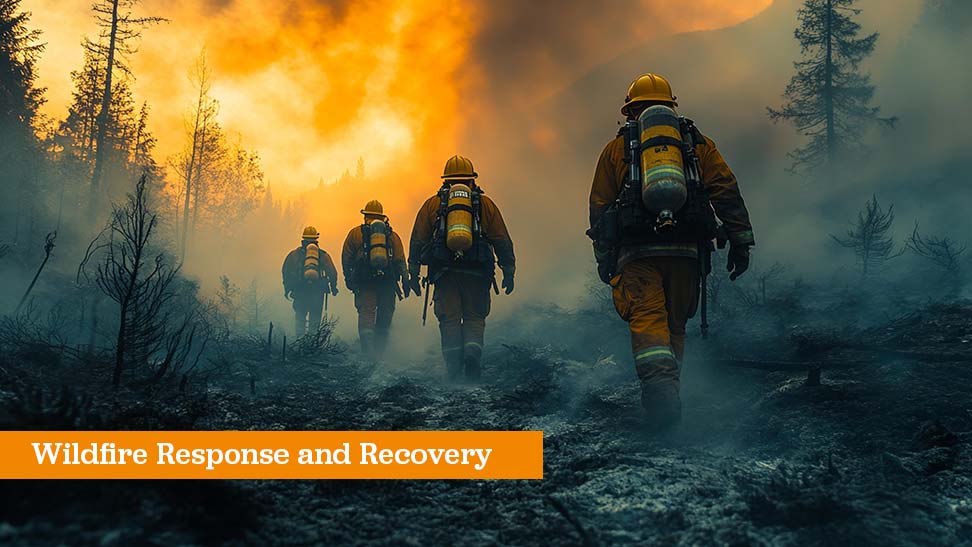Wildfires are among the most heartbreaking natural disasters, tearing families away from their homes and uprooting lives in an instant. Imagine having to leave everything behind, grabbing only the clothes on your back while the flames rage nearby. The brave first responders, putting their own safety on the line, tirelessly fight the blaze, embodying resilience and courage. Meanwhile, evacuees find themselves in temporary shelters that are often overwhelmed and under-resourced, desperately trying to navigate their new reality amidst chaos and uncertainty.
In these moments of crisis, the power of community shines through, and the right relief supplies can be a lifeline. A comforting meal, warm blankets, and basic clothing and hygiene items can provide not just physical support but also a glimmer of hope to those in need. During these challenging times, compassion, solidarity, and generosity become essential, reminding us of our shared humanity. Together, we can help rebuild lives and restore a sense of normalcy, proving that even in the darkest moments, we are never truly alone. Whether you’re an organization providing immediate assistance or planning long-term recovery efforts, here’s a list of the most critical relief supplies needed during and after a wildfire:
1. Air Quality Protection for First Responders and Evacuees
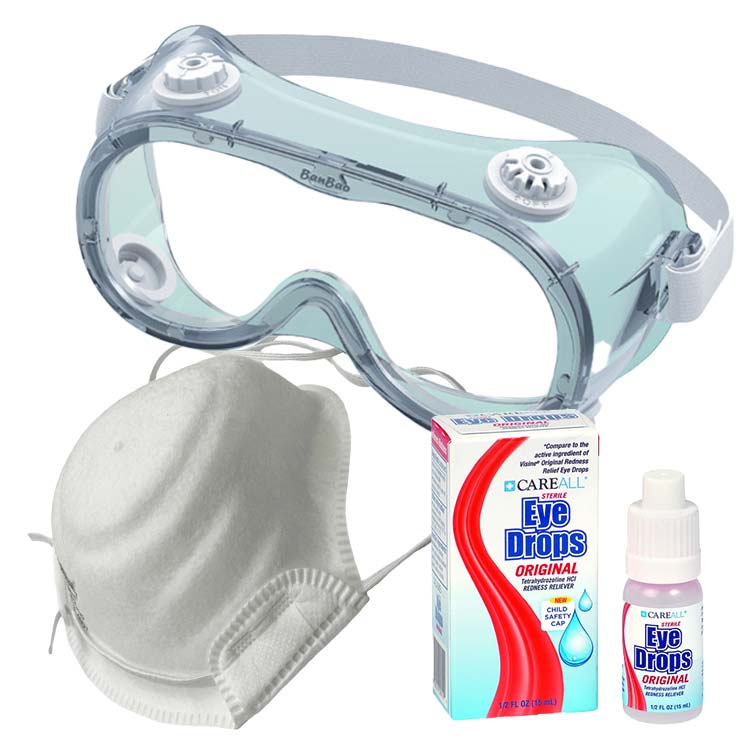 Wildfires produce hazardous smoke, ash, and other airborne particles, which can severely impact respiratory and eye health. Providing proper protection is essential.
Wildfires produce hazardous smoke, ash, and other airborne particles, which can severely impact respiratory and eye health. Providing proper protection is essential.
- N95 Masks: Help mitigate the negative effects of inhaling harmful smoke and fine particulate matter.
- Goggles: Shield eyes from airborne debris and irritants.
- Eye Drops: Soothe dry, irritated eyes caused by exposure to smoke and ash.
- Air Purifiers: If feasible, air purifiers in shelters can help maintain better air quality for evacuees.
2. Camping and Shelter Supplies for Comfort
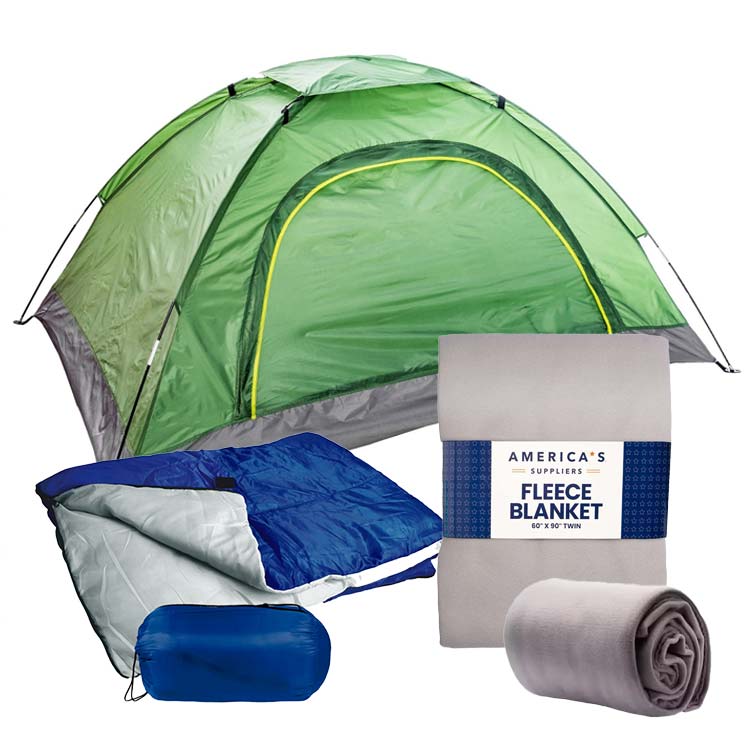 Many evacuees find themselves in shelters, gyms, or outdoor settings without access to basic comforts. The following supplies can provide much-needed relief and a good night’s sleep.
Many evacuees find themselves in shelters, gyms, or outdoor settings without access to basic comforts. The following supplies can provide much-needed relief and a good night’s sleep.
- Sleeping Bags and Blankets: Help families stay warm and comfortable, especially in temporary shelters.
- Cots and Air Mattresses: Offer a better alternative to sleeping on hard floors.
- Tents: Provide privacy and shelter for those without access to indoor spaces.
- Flashlights and Batteries: Essential for safety and visibility in temporary accommodations.
3. Clothing Basics for Displaced Families
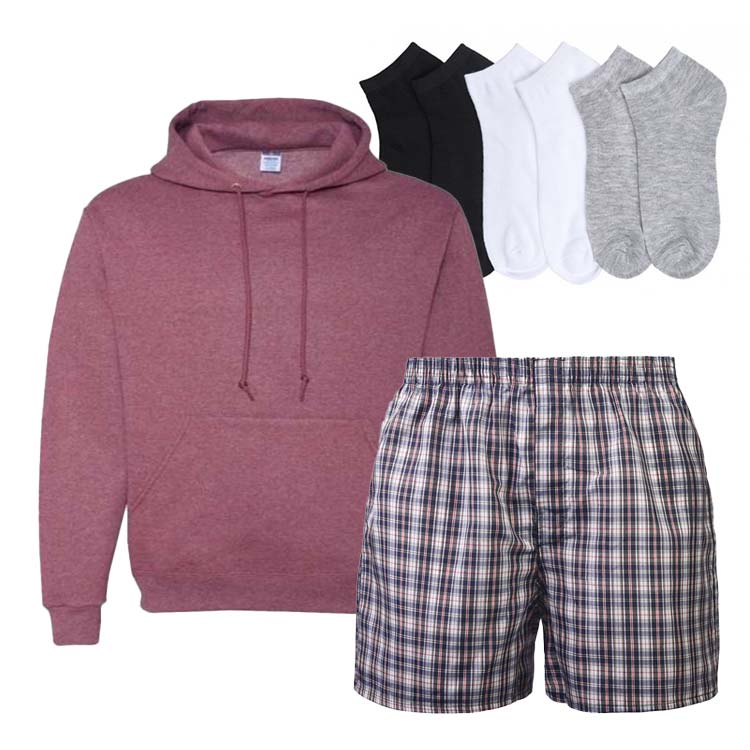 When families evacuate quickly, they often leave without time to pack essentials. Providing clean, new clothing can restore dignity and comfort.
When families evacuate quickly, they often leave without time to pack essentials. Providing clean, new clothing can restore dignity and comfort.
- Undergarments and Socks: Ensure hygiene and comfort by providing essential clothing items that are in high demand.
- T-Shirts and Pants: Offer comfortable, versatile basics that can fit various needs.
- Seasonal Items: In colder months, jackets, hats, and gloves will be greatly appreciated. In contrast, opt for lighter, breathable fabrics during warmer weather.
4. Personal Care Items to Maintain Health and Cleanliness
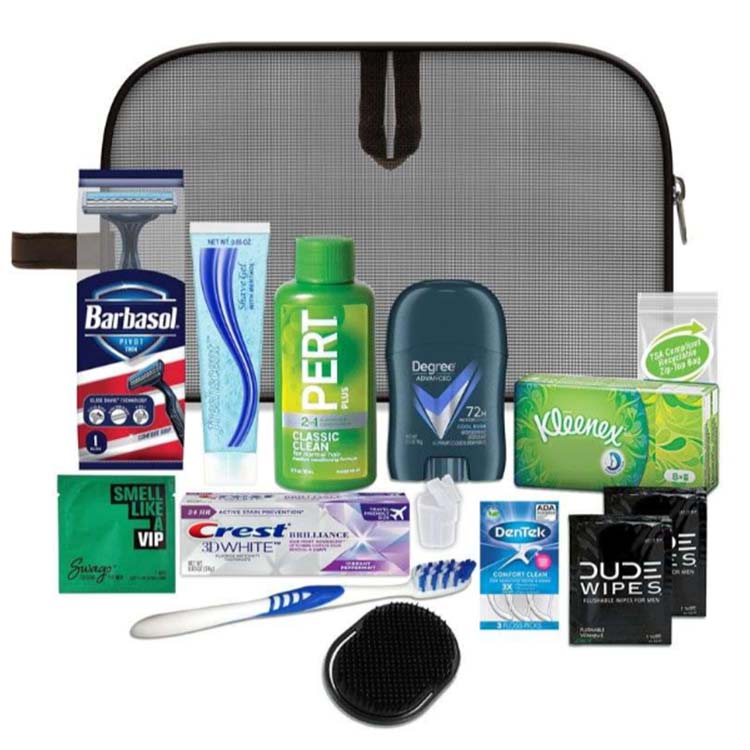 Living in close quarters without access to running water or showers increases the risk of illness and negatively impacts general well-being. Basic hygiene and personal care items go a long way in restoring dignity and maintaining good health.
Living in close quarters without access to running water or showers increases the risk of illness and negatively impacts general well-being. Basic hygiene and personal care items go a long way in restoring dignity and maintaining good health.
- Soap and Hand Sanitizer: These basic items are essential for preventing the spread of germs.
- Toothbrushes and Toothpaste: Keep oral health in check.
- Body Wash, Shampoo, Deodorant, Washcloths, and Towels: Help evacuees maintain personal hygiene.
- Feminine Hygiene Products: These items are often overlooked but critically important.
- Baby Care Items: Diapers, wipes, and baby formula are must-haves for families with infants.
5. Food and Water for Sustained Energy
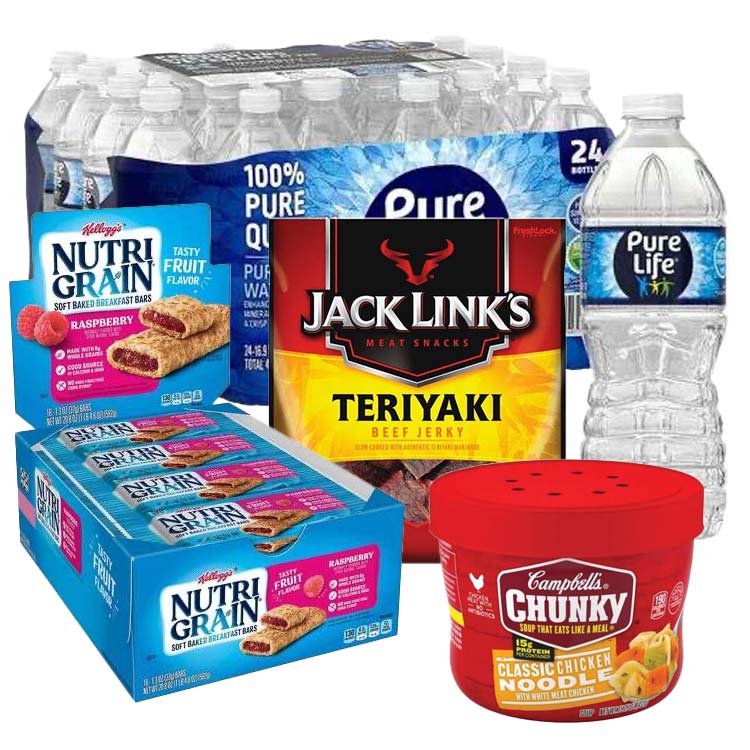 Experts recommend having at least three days of food and water supplies for evacuation scenarios. Consider these essentials for evacuees.
Experts recommend having at least three days of food and water supplies for evacuation scenarios. Consider these essentials for evacuees.
- Non-Perishable Food: Canned goods, protein bars, and ready-to-eat meals provide vital nourishment without risk of spoiling. Foods that don’t require preparation or cooking are ideal in evacuation shelters.
- Bottled Water: A basic but lifesaving necessity — FEMA and the American Red Cross suggest one gallon of water per person per day for hydration, food prep, and basic hygiene.
- Electrolyte Drinks: Help rehydrate those exposed to heat and smoke by providing pre-mixed sports drinks or electrolyte mix packets.
- Disposable Plates and Utensils: Make serving meals easier in shelters or outdoor environments.
6. Emotional Comfort Items for Families and Children
 During disasters, comfort items can provide much-needed emotional relief, especially for children.
During disasters, comfort items can provide much-needed emotional relief, especially for children.
- Toys and Games: Simple distractions can bring comfort to children who have endured traumatic events, such as a sudden evacuation.
- Books and Coloring Supplies: Help families pass the time easier by providing entertainment and comfort in shelter environments.
- Comfort Blankets or Stuffed Animals: Help young evacuees feel safe with a soft item they can snuggle up with.
How Organizations Can Make a Difference
Every wildfire response is unique, shaped by the experiences of those who endure its devastating effects. Yet, one thing remains constant: the extraordinary resilience of the communities affected and the unwavering support of organizations that stand by them. If you’re an organization ready to assist or currently providing aid in wildfire relief efforts, having the right supplies on hand can be a lifeline for those in need. These supplies not only save lives but also offer comfort and serve as the foundation for rebuilding lives shattered by disaster.
At DollarDays, we understand the urgency and complexity of disaster relief. We provide a comprehensive range of essential relief supplies — hygiene kits, basic clothing, shelter equipment, and much more. Our commitment extends beyond just delivering products in bulk; we handle all the logistics to ensure these vital resources reach you swiftly and efficiently. We aim to alleviate the stress of the process, allowing you to concentrate on what truly matters: your mission to support those facing unimaginable challenges.
